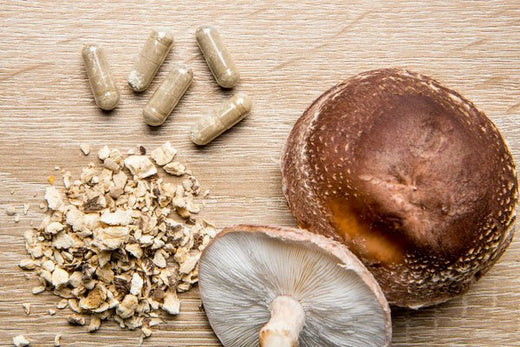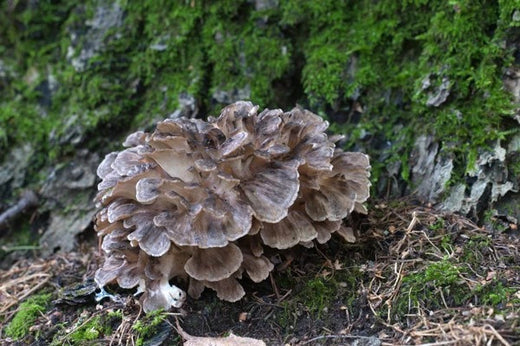What Do Adaptogenic Herbs Refer to?

What is the Function of Adaptogenic Herbs?
What Can Adaptogenic Herbs Do?
Adaptogenic herbs refer to a superior class of herbal substances derived from various sources such as plants, fungi, and minerals. They have been used in different medicinal systems like Indian Ayurveda and Traditional Chinese Medicine for centuries. These herbs gained attention in the Western world when the USSR explored their potential benefits for enhancing the physical and mental capabilities of soldiers and athletes. Eleuthero root, similar to Asian Ginseng, was discovered to possess qualities such as increased stamina, cognition, and energy. As a result, adaptogenic herbs started to transition from traditional medicine to Western herbalism and biohacking.
Before modern medicine became prevalent, herbal medicine was the primary healing modality. Adaptogenic herbs play a crucial role in ancient medicinal systems like Indian Ayurvedic medicine and Traditional Chinese Medicine, which are the oldest and most comprehensive systems in the world.
So, what do adaptogenic herbs do? They help the body adapt, quite literally. These herbs support the HPA axis (hypothalamic-pituitary-adrenal axis), mitigate the physiological stress response, preserve cortisol levels, and reduce inflammation and imbalances caused by chronic stress. They possess intelligence that brings the body closer to equilibrium and homeostasis. Adaptogenic herbs assist in regulating vital systems in the body, depending on the specific needs of the individual's health at that time.
Additionally, adaptogenic herbs serve as everyday tonics and long-term superfoods that strengthen multiple body systems in a non-specific manner, offering various benefits. In the fast-paced modern world, these herbs play a vital role in supporting, nourishing, and protecting individuals in a multifaceted way.
Table of Contents
-
What is the meaning of an adaptogenic herb?
-
The Evolution of Adaptogenic Herbs Throughout History
-
Are Adaptogens Beneficial for Your Health?
-
Adaptogenic Herbs for Adrenal Fatigue
-
Using Adaptogenic Herbs to Relieve Stress
-
Herbs with Adaptogenic Properties for Achieving Hormonal Balance
-
List of Top Adaptogenic Herbs
-
Panax Ginseng
-
Reishi Mushroom
-
Rhodiola Rosea
-
Cordyceps Mushroom
-
Eleuthero Root
-
Tulsi
-
Amla
-
Shilajit
-
Licorice Root
-
Frequently Asked Questions about Adaptogens
-
Are Adaptogens Effective?
-
What are some examples of adaptogens?
-
Is Turmeric considered an adaptogen?
-
To conclude
-
References
What is the meaning of an adaptogenic herb?
An adaptogenic herb refers to a type of herb that has not yet been fully accepted in conventional medicine. The term "adaptogen" was coined by science to describe these substances because they cannot be standardized or controlled like pharmaceutical drugs.
Nature exhibits variations in the properties, amounts, appearance, potency, and size of herbs because of their inherent workings, and we have no control over them.
It is worth noting that 25% of current pharmaceuticals were originally derived from plants used in herbal medicine. For example, Aspirin is derived from salicin, a compound found in the White Willow plant.
To be considered a true adaptogen, a plant, fungi, or mineral must possess certain beneficial functions:
- Buffer and minimize the adverse physiological effects of chronic stress. They trigger a nonspecific response to stress and work through the HPA axis to help the body cope with stress and avoid being trapped in a chronic state of the fight-or-flight response.
- Support, balance, and nourish the immune system (which resides 70% in the gut) through rich polysaccharides and triterpenoid saponin compounds. Additionally, they exhibit anti-inflammatory, antibacterial, antifungal, and antiviral properties.
- Restore and normalize multiple bodily systems. They can have stimulating and warming effects, as well as calming, cooling, and nourishing effects.
- They are non-toxic and safe for regular consumption over a long period without causing any side effects.

The Evolution of Adaptogenic Herbs Throughout History
During ancient times, adaptogenic herbs were exclusively reserved for the affluent and royal families of advanced societies, representing attributes such as longevity, youthfulness, restoration, and fertility.
More than 2000 years ago (BCE), Chinese emperors held Reishi mushroom and Ginseng in such high regard that possessing these elixirs of longevity without a connection to the royal family was considered a serious offence.
The emperors believed that by consuming these herbs, they would ensure their own long and healthy lives, enabling them to be effective rulers of their dynasties.
While much of the knowledge surrounding adaptogenic herbs was passed down orally rather than through written documentation, their utilization dates back even further to Ancient Egypt, where papyruses were discovered documenting the use of herbs for treating everyday ailments such as digestive issues.
Around 200 BCE, the Charaka Samhita, a Sanskrit text on Ayurveda, recorded the identification of key herbs such as Amla, Holy Basil, and Shilajit as potent medicines for restoring balance and overall well-being.
The awareness of these powerful tonics spread globally through Ancient Greek writings, which chronicled the medicinal application of plants like Rhodiola and Licorice root, among others, in the Materia Medica.
Over 1000 years ago, the Khanty People of West Siberia described the use of Chaga mushroom, while the Vikings consumed Rhodiola to enhance their physical and mental strength.
Throughout history, nature has provided us with natural remedies through the abundance of plants and fungi. However, with the emergence of the patriarchal era and modern Western medicine, much of this plant wisdom and knowledge was disregarded and dismissed.
With the rise of modern Western medicine, adaptogenic herbs started gaining popularity as "alternative" methods of healing, including Traditional Chinese Medicine (TCM), naturopathy, and functional medicine.
The integration of Eastern philosophy and medicine into Western medicine led to increased popularity and scientific study into the benefits of these tonics. Modern research has revealed extensive health benefits and applications that are still being explored by the scientific community.
The impressive resurgence of these potent herbs in today's society can be observed. From the 1920s to the 1960s, there was a period often referred to as the "Herbal Dark Ages" when these tonics were scarcely used, particularly in Western countries such as the USA, Canada, the UK, and Australia.
Adaptogens came into the Western spotlight during the Second World War through the efforts of the USSR (1938-1945).
Motivated to discover herbal tonic substances that could rival Chinese Ginseng, the USSR sought to improve the stamina, endurance, and energy levels of key figures and personnel in their culture. They aspired to create superhumans who could excel in all areas of life, including the military, athletics, science, and politics.
Scientists Nikolai Lazarev and Israel Brekhman were recruited by the USSR to lead the search for new adaptogenic substances.
Nikolai Lazarev introduced the term "adaptogen" and documented the first modern record of Schisandra Berry in military journals. Later, in the 1960s, Israel Brekhman discovered the Eleuthero root. Prior to this, adaptogenic herbs were categorized as "tonic herbs" that restored and toned specific organs within the body.
Further interest and research focused on studying different herbal substances to explore their potential applications in the military and athletic realms. This led to extensive studies and documentation on Rhodiola during the 1970s.

Are Adaptogens Beneficial for Your Health?
The extensive research and effects of adaptogens highlight a wide range of health benefits that cater to individual needs.
True to their name, adaptogens excel at aiding the body in adapting in both directions.
For instance, individuals facing health issues like chronic fatigue and exhaustion will find that consuming these herbs nurtures and supports the adrenal glands while boosting energy levels.
On the other hand, those who are constantly wired, overstimulated, and restless will discover that these herbs assist in calming the central nervous system, preserving cortisol levels, and restoring a sense of balance.
Adaptogenic herbs operate through three distinct mechanisms:
- They facilitate non-specific HPA axis responses and anti-stress functions.
- They contain potent compounds with anti-inflammatory and antioxidant properties.
- They work to restore physiological imbalances.
Describing these potent herbal substances is a challenge because they possess truly extraordinary qualities and offer a multitude of unique and combined benefits that enhance our resilience."
Adaptogenic Herbs for Adrenal Fatigue
Utilizing adaptogens in cases of adrenal fatigue can offer significant benefits to individuals experiencing fatigue. Adrenal fatigue can have various causes, but adaptogenic herbs help restore equilibrium to the HPA axis (hypothalamic-pituitary-adrenal).
Stress, whether it arises from arguments, deadlines, being late for work, toxic substances in water, internal inflammation, or allergies, is perceived as a threat by the body. The brain processes this threat and triggers the hypothalamus to release corticotropin-releasing hormone (CRTH). CRTH then stimulates the pituitary gland to release adrenocorticotropic hormone (ACTH), which, in turn, signals the adrenal cortex to produce cortisol and the adrenal medulla to release adrenaline and noradrenaline. This chain of events activates the sympathetic nervous system, resulting in the fight-or-flight response.
Adaptogenic herbs intervene in this communication pathway, reducing the signals from the brain to the adrenals. This preservation of cortisol, our anti-stress hormone, as well as adrenaline and noradrenaline, helps alleviate the fight-or-flight response.
When the body is continually exposed to cortisol over time, adrenal fatigue can develop. Cortisol's role is to deactivate the stress response, which is typically only experienced acutely and not chronically, as often happens in modern-day life.
The top adaptogenic herbs recommended for adrenal fatigue are Ashwagandha root, Schisandra berry, Eleuthero root, Asian Ginseng, Astragalus, Holy Basil, Cordyceps mushroom, and Reishi Mushroom."
Using Adaptogenic Herbs to Relieve Stress
Adaptogens, known for their stress-protective properties, alleviate stress by enhancing resilience and fortifying the body, enabling it to better handle perceived threats and stressors.
Addressing stress relief is also crucial in combating adrenal fatigue. By mitigating the original stressor or perceived threat, the entire stress response can be minimized or deactivated.
While stressors can stem from lifestyle or stress-inducing activities, chronic stress can also have biological origins such as imbalanced blood glucose levels, microbial infections, and gut inflammation.
To effectively manage stress, it is beneficial to incorporate potent adaptogens like Shilajit, Astragalus root, and Licorice root. These adaptogens not only nourish the liver and pancreas but also support immune function and promote gut health. Consequently, they assist in reducing additional internal stressors that may arise."
Herbs with Adaptogenic Properties for Achieving Hormonal Balance
The utilization of adaptogenic herbs effectively promotes the restoration of hormonal balance, particularly in relation to sex hormones.
The metabolism of hormones takes place within the liver. Certain herbs like Schisandra berry and He Shou Wu (prepared root) possess hepatoprotective and hepatorestorative properties. This means they aid in the restoration and support of liver cells, known as hepatocytes, thereby enhancing hormone metabolism and balance.
The impact of stress on hormone levels is significant, leading to a decline in sexual drive, infertility, and hormonal imbalances. These herbs act as a buffer against stress and contribute to the restoration of hormone levels.
Cordyceps mushroom, Shatavari, Asian Ginseng, and He Shou Wu have been traditionally recognized as the most effective adaptogenic herbs for achieving hormonal balance. They have been utilized for centuries to improve both hormonal balance and reproductive function."
List of Top Adaptogenic Herbs
After exploring the background and significant health advantages of adaptogens, let's delve into a compilation of highly esteemed and widely-used adaptogenic herbs:
- Teelixir Ashwagandha root extract powder
- Ashwagandha Root Ashwagandha (Withania somnifera) has been utilized in Ayurvedic medicine for more than 4,000 years.
- Known as "the smell and strength of a horse," Ashwagandha enhances endurance, stamina, and physical strength. Its Latin name, Somnifera, signifies its sleep-inducing properties, aiding in sleep and promoting recovery.
- The benefits of Ashwagandha root extract include:
- Enhances physical and cognitive performance, including learning and memory
- Increases muscle mass and strength
- Protects the cardiovascular system, including the heart, blood vessels, and veins
- Reduces oxidative stress, which can lead to cell damage, inflammation, and cancer
- Possesses potent anti-inflammatory properties
- Modulates and strengthens the immune system (immunotropic)
- Supports stress management and reduces anxiety
- Promotes improved sleep

Panax Ginseng
Panax Ginseng, commonly known as Asian ginseng, has its origins traced back to the Chui Zhang, the Chinese representation of the creation story.
In Japan, Korea, and China, this precious herb was highly regarded for its ability to enhance the Qi (life force) of individuals who consumed it. Within Traditional Chinese Medicine (TCM), it is recognized for strengthening the spleen, kidneys, and stomach, and supporting lung health.
The advantages of Asian Ginseng also encompass:
- Enhancement of physical and cognitive capabilities
- Including learning and memory
- Combatting fatigue
- Providing neuroprotective effects to safeguard nerves
- Reducing oxidative stress
- Preventing the development of plaque within blood vessels (atherosclerosis), thereby reducing the risk of strokes and heart attacks
- Improving vasodilation and promoting healthy blood vessels. Regulating blood sugar levels. Possessing potent anti-inflammatory properties.

Reishi Mushroom
Reishi mushroom, scientifically known as Ganoderma lucidum, has a rich history of being revered for its ability to enhance longevity and overall well-being in Eastern cultures such as China, Japan, and other Asian countries.
Known as Ling Zhi in Chinese, the Reishi mushroom is associated with concepts of spiritual potency, immortality, and divine power, closely linked to ancient Taoist beliefs.
Extract from Reishi mushroom is recognized as a potent tonic for the spirit (Shen), promoting a sense of calmness, grounding, and mental well-being.
The health advantages of Reishi mushroom include:
- Protection for the liver
- Inhibition of cholesterol synthesis and anti-atherosclerosis properties
- Potent anti-inflammatory effects
- Induction of apoptosis (cell death)
- Boosting antioxidant levels
- Anti-tumour properties
- Antimicrobial activity
- Neuroprotective effects
- Enhancement of the immune system
- Potential reduction of anxiety and depression
- Promotion of improved sleep.
- Discover comprehensive information about medicinal mushrooms to gain a deeper understanding of their benefits.

Rhodiola Rosea
Rhodiola Rosea, originating from Siberia and the mountainous regions of northwest China, has been historically sought after by the Chinese through expeditions to cultivate and bring back this plant, earning it the nickname "the golden root." In Traditional Chinese Medicine (TCM), Rhodiola is recognized for its ability to fortify and nourish the Lung and Heart meridians while replenishing Qi.
The advantages of Rhodiola rosea encompass the following:
- Combats fatigue and chronic fatigue syndrome (CFS).
- Enhances physical and cognitive performance, including learning and memory.
- Exhibits neuroprotective properties.
- Safeguards the cardiovascular system.
- Possesses potent anti-inflammatory characteristics.
- Modulates the immune system.
- Demonstrates antiviral effects.
- Acts as an antibacterial agent.
- May reduce symptoms of anxiety and depression.
- Elevates mood.
- Boosts antioxidant levels.

Cordyceps Mushroom
The Cordyceps mushroom, scientifically known as Cordyceps Sinensis, gained notoriety as an adaptogen used by the 1993 Chinese national track and field team to break multiple longstanding world records.
Subsequently, it was discovered that the coach had been supplementing the athletes with a special formula containing Cordyceps mushroom as the primary ingredient, aiming to enhance their performance, energy levels, stamina, and recovery.
The mention of Cordyceps dates back to 1767 in Chinese literature, with the mushroom traditionally harvested from the Himalayan mountains in Tibet.
In contemporary times, Cordyceps is also referred to as "Cordysex" due to its potent effects as a natural aphrodisiac and fertility booster.
Furthermore, the health benefits associated with Cordyceps mushroom include:
- Augments the release of nitric oxide, leading to improved cardiovascular health.
- Enhances oxygen transportation within the bloodstream.
- Boosts stamina, performance, and recovery.
- Increases cellular energy.
- Improves cognitive function.
- Combats fatigue.
- Supports lung health.
- Enhances oxygen utilization.
- Acts as an anti-asthmatic agent.
- May aid in lowering cholesterol levels.
- Bolsters the immune system.
- Protects nerves.
- Helps maintain a balance of progesterone and testosterone.
- Enhances sex drive and libido.

Eleuthero Root
Eleuthero root, also known as Siberian Ginseng (Eleutherococcus senticosus), was discovered as a result of the high demand and scarcity of Asian Ginseng in China, which led to overharvesting.
In Traditional Chinese Medicine (TCM), the Eleuthero root is believed to support the three treasures: Jing (essence), Qi (vital energy), and Shen (spirit). It is known for its ability to enhance energy, stamina, and resilience to stress.
The benefits of Eleuthero root include:
- Combating fatigue and Chronic Fatigue Syndrome (CFS)
- Enhancing physical and cognitive performance, including learning and memory
- Protecting the liver
- Inhibiting cholesterol synthesis and reducing the risk of atherosclerosis
- Possessing potent anti-inflammatory properties
- Improving blood sugar levels
- Boosting immunity
- Exhibiting antiviral and antibacterial properties
- Balancing hormones
- Potentially reducing stress and anxiety.
Tulsi
Tulsi, scientifically known as Ocimum sanctum, is a revered herb in India and Ayurvedic medicine, often referred to as Holy Basil.
With a profound background deeply rooted in Hinduism religion and mythology, Tulsi has been utilized for countless years in ancient Greek, Roman, and Siddah medicinal traditions.
Ancient texts describe Tulsi as "the incomparable one," symbolizing faithfulness and aiding in the pursuit of spiritual enlightenment.
Tulsi serves as an exceptional adaptogen for managing stress and a potent antioxidant, safeguarding the body against the detrimental effects of stress. Furthermore, it possesses antimicrobial, antifungal, and anti-inflammatory properties.
Typically consumed as a tea, Tulsi has demonstrated its ability to bolster the immune system, support liver health, promote longevity, and nurture mental well-being.
Amla
Amla, an ancient fruit used in Ayurvedic practices, is known for its adaptogenic properties. It is highly abundant in vitamin C and antioxidants, making it a popular choice as a "beauty tonic" that promotes the synthesis of collagen.
According to Hindu mythology, the first Amalaki tree grew from the joyful tears shed by the goddesses Lakshmi and Parvati.
Amla holds great significance in Hindu traditions as a revered tonic believed to enhance longevity, memory, and youthfulness.
The numerous health benefits of Amla encompass the following:
- Supports the production of collagen and maintains healthy connective tissues.
- Alleviates inflammation.
- Acts as a tonic for the nervous system.
- Exhibits antiviral properties.
- Functions as a diuretic.
- Helps in reducing cholesterol levels.
- Possesses anti-ageing properties.
- Supports healthy eyesight.
- Improves the integrity of capillaries and aids in wound healing.
Shilajit
Shilajit stands out as a unique adaptogen due to its tar-like black substance that emerges from rocks at high altitudes in the Himalayan mountains.
This remarkable substance, rich in trace minerals derived from the earth, as well as organic acids like humic and fulvic acids, acts as nourishment for our cells, supporting the optimal functioning of our organs.
The advantages of Shilajit for health encompass the following:
- Reduces blood glucose levels (hypoglycemic effect)
- May assist in lowering cholesterol
- Enhances insulin sensitivity
- Possesses potent anti-inflammatory properties
- Boosts antioxidant levels
- Acts as an anti-allergen
- Enhances immunity
- Might improve iron levels and prevent anaemia
Licorice Root
Licorice root finds widespread use in the Western world, both as a tea and as a functional medicinal herb.
The historical usage of licorice root traces back to Ancient Greece, where it was employed to treat dry coughs, sore throats, and respiratory diseases
Its name, originating from ancient Greek, translates to "sweet root," which aptly describes its nature as an excellent Qi tonic.
The health benefits associated with licorice root include:
- Balances blood glucose levels (specifically glycyrrhiza)
- Soothes the lining of the gastrointestinal tract and mucosal membranes
- Improves digestion
- Boosts immunity
- Exhibits antiviral properties
- Acts as an anti-diuretic
- Demonstrates antihistaminic effects
- Acts as a demulcent
- Functions as an expectorant
- Provides hepatoprotective properties (liver protection)
Frequently Asked Questions about Adaptogens
Are Adaptogens Effective?
David Winston, a researcher and expert, draws an analogy between adaptogenic herbs and vaccines.
In the same way that a vaccine teaches the body to recognize a virus, these herbs impart intelligence to the body on how to respond appropriately and effectively to stress. As a result, they counteract the negative effects of chronic stress, preventing its detrimental impact.
In addition to their three primary characteristics, each adaptogen possesses a unique function within our body, offering specific benefits. They interact with various biochemical pathways and systems, making them not only scientifically intriguing but also philosophically captivating.
Adaptogenic herbs can be considered nature's remedy for chaos and stress.
The circumstances in which adaptogens grow are symbolic and poetic, as they thrive in harsh conditions and climates. For instance, Rhodiola grows on treacherous, wind-swept cliff faces atop mountains.
The remarkable fact that tonics like Reishi mushroom have receptor sites on our cells specifically designed to bind with Reishi mushroom's beta-glucans highlights our intrinsic connection with nature and its medicinal properties.
These herbs work their magic by either increasing or decreasing the body's own chemical, physical, and biological levels, depending on what is needed.
For example, if you are excessively stimulated, adaptogens will help calm your nervous system and restore balance (homeostasis).
Conversely, if you feel depleted, tired, and sluggish, they will uplift and restore you to a healthier state.
Some adaptogens can either stimulate or calm, depending on the individual's needs, which is fascinating. Certain herbs are beneficial when you are already healthy and thriving, allowing you to maintain a high level of well-being.
Other herbs are particularly useful when you are depleted and worn down, helping you rebuild and regain optimal functionality.

What are some Examples of Adaptogens?
Due to the increasing popularity of adaptogens in the West, the term "adaptogen" has become a buzzword used by marketers to take advantage of this growing trend.
As a result, many foods and herbs are incorrectly labelled as "true" adaptogens, which can be misleading for consumers. So far, fewer than thirty herbs have been identified as "true" adaptogens, possessing the genuine qualities and beneficial properties of adaptogens.
The most commonly recognized adaptogenic herbs and adaptogen blend products in the market today include Ashwagandha, Asian Ginseng, Rhodiola Rosea, Reishi mushroom, Schizandra berry, Eleuthero root, Cordyceps mushroom, Holy Basil (Tulsi), Astragalus root, American Ginseng, Shilajit, Amla, Jiaogulan (Gynostemma), Shatavari, He Shou Wu, Licorice root, and Turmeric (considered a mild adaptogen).

Is Turmeric considered an adaptogen?
Turmeric is classified as a gentle adaptogen and contains plant sterols that provide powerful anti-inflammatory and antioxidant advantages.
For more than 4000 years, Turmeric (Curcuma longa) has been utilized in Ayurvedic medicine and has been a fundamental ingredient in Indian cuisine and culture, particularly as an adaptogenic tea.
Initially recognized as an antidote for food poisoning, a treatment for sprains and swelling, and a digestive aid, Turmeric is also believed to have the ability to dilate blood vessels, enhance blood circulation, and fortify overall energy levels.
The health benefits associated with Turmeric encompass the following:
- Prominent anti-inflammatory properties
- Heightened antioxidant activity
- Support for liver function
- Anti-tumour effects
- Potential reduction of depression and anxiety symptoms
- Acceleration of wound healing
- Improvement of blood sugar regulation
- Facilitation of digestion and promotion of bowel health
- Inhibition of cholesterol synthesis and prevention of atherosclerosis
- Assistance in the detoxification process
To conclude
The ideal adaptogenic herbs are designed for daily consumption over extended periods, ensuring long-term safety while restoring a healthy and harmonious body.
These potent tonics aid in regaining balance and their impact is more pronounced when there is greater imbalance within the body. The benefits of adaptogens are experienced and felt more strongly in such cases.
For individuals who are less sensitive, the effects of the herbs may no longer be apparent after a few weeks. However, this does not imply that the herbs are no longer beneficial for their overall health.
This concept may be challenging for impatient individuals in Western societies. The fast-paced mindset often seeks immediate solutions and instant gratification in all aspects, including health benefits.
Nonetheless, with consistent and prolonged usage, these herbs continuously enhance the body's functioning and strength, leading to excellent health restoration and achieving balance.
Therefore, if you have been taking any of these herbs and notice that their effects seem to have diminished after a few days or weeks, do not lose faith or assume they have stopped working.
Adaptogenic herbs have wide-ranging applications and versatility when it comes to improving overall health, well-being, vitality, and longevity.
They are nature's invaluable assets for coping with the ever-growing stress in today's society. By alleviating the burden and mitigating the negative impact of stress on our body, mind, and spirit, they work towards rebalancing disharmonies within us, making them potent and advantageous.
In reality, these herbs address the underlying causes of symptoms, discomfort, and illness, offering more than just a temporary pharmaceutical solution.
I personally encourage everyone to incorporate 1-2 adaptogenic herbs from this list into their lives. Just like Mother Nature, we operate in seasons and cycles. During certain periods and phases, we encounter harsh conditions and require additional support to thrive.
These herbs assist the body in thriving and adapting throughout the year, regardless of the circumstances.
We are fortunate to live in a time when we have access to these highly revered and valuable herbs that promote lifelong excellent health.
I have personally experienced the powerful advantages and effects of these beneficial Teelixir tonics, supporting us in our journey towards thriving in this world.
Therefore, I recommend purchasing the finest adaptogenic herb products available.
Written by Eliza Hedley
Eliza is a health, mindset and abundance enthusiast obsessed with helping millennials experience living at a higher level.
Her relaxed new-age approach and understanding of nutrition and wellness see her empowering and coaching individuals to understand that their health is the ultimate asset. Upon experiencing first-hand the power and place of tonic herbalism and medicinal mushrooms in everyday life, Eliza’s become an adaptogen fangirl and feels their utilisation in today’s world is essential for abundance and wellbeing.
Website: https://theholisticsister.com
Instagram: @the_holistic_sister_
References
Adaptogens: A Review of their History, Biological Activity, and Clinical Benefits - http://cms.herbalgram.org/herbalgram/issue90/Feat_Adaptogens.html?ts=1553502685&signature=7c0bdff02c3754197c787c9567bd3789A Review of their History, Biological Activity, and Clinical Benefits. https://www.researchgate.net/publication/236462312_Adaptogens_A_Review_of_their_History_Biological_Activity_and_Clinical_Benefits
Adaptogens: Herbs for Strength, Stamina, and Stress Relief. Book by David Winston and Steven Maimes
Natural products derived from plants as a source of drugs https://www.ncbi.nlm.nih.gov/pmc/articles/PMC3560124/
A Fun History - https://wylde-one.com/pages/a-fun-history-on-adaptogens
Herbs and medicine in ancient Egypt - https://academicjournals.org/journal/JMPR/article-full-text-pdf/F90544714963
Medicinal Plants and Phytomedicines. Linking Plant Biochemistry and Physiology to Human Health - http://www.plantphysiol.org/content/124/2/507.short
What Are They and What Are They Supposed to Do? https://drinkmetta.com/blogs/the-elevated-life/the-ultimate-guide-to-adaptogens
An Overview on Ashwagandha: A Rasayana (Rejuvenator) of Ayurveda. https://www.ncbi.nlm.nih.gov/pmc/articles/PMC3252722/
Examining the effect of Withania somnifera supplementation on muscle strength and recovery: a randomized controlled study trial https://www.ncbi.nlm.nih.gov/pubmed/26609282
Cort RX https://atpscience.com/product/cort-rx/
Oxford Vitality - https://www.oxfordvitality.co.uk/adaptogens
Hyperglycemia: Effects and Mechanisms associated with Ginseng -https://www.ncbi.nlm.nih.gov/pmc/articles/PMC2781779/
Ginseng - https://www.avogel.ch/en/plant-encyclopaedia/panax_ginseng.php
Ganoderma lucidum (Lingzhi or Reishi) - https://www.ncbi.nlm.nih.gov/books/NBK92757/
Eleuthero Root - https://www.gaiaherbs.com/blogs/herbs/eleuthero
The History and Benefits of Eleuthero https://www.integrativepro.com/Resources/Integrative-Blog/2017/History-Benefits-Eleuthero
Holy Basil: Relieve Anxiety and Stress Naturally - http://www.medicinehunter.com/holy-basil
What sort of plant is Rhodiola rosea? http://www.ethnoherbalist.com/best-rhodiola-rosea-review/
Rhodiola - http://www.shen-nong.com/eng/herbal/hongjingtian.html
Turmeric, the golden spice https://www.ncbi.nlm.nih.gov/books/NBK92752/
Turmeric - https://www.webmd.com/vitamins/ai/ingredientmono-662/turmeric
Holy Basil - https://www.gaiaherbs.com/products/ingredient/427/Holy-Basil
Holy Basil - https://articles.mercola.com/vitamins-supplements/holy-basil.aspx






